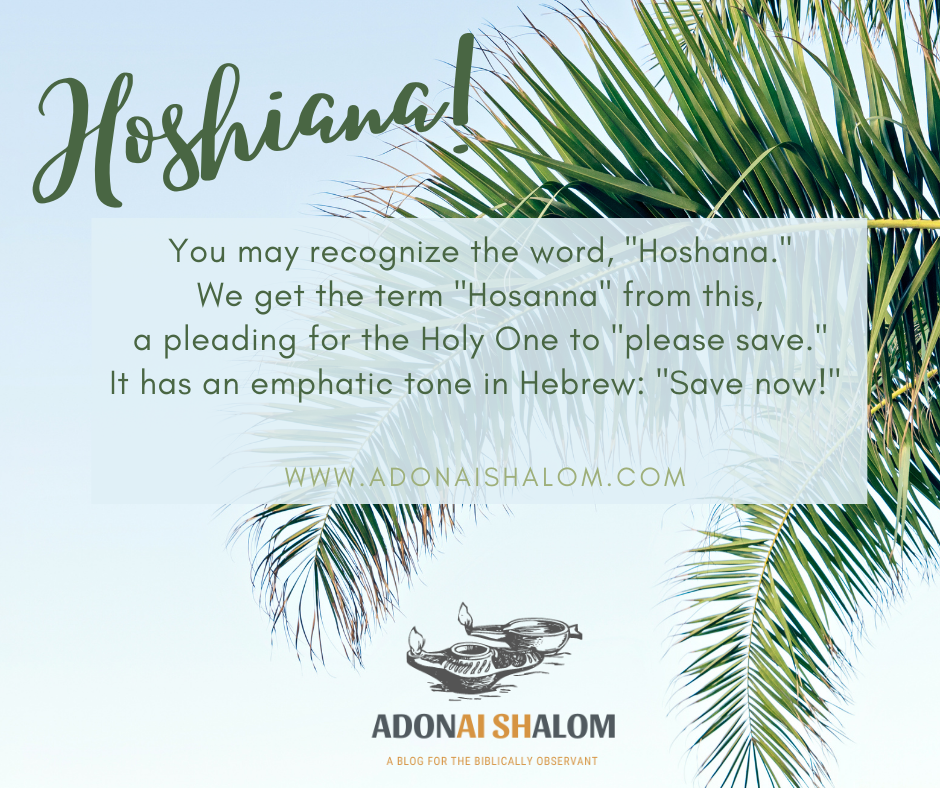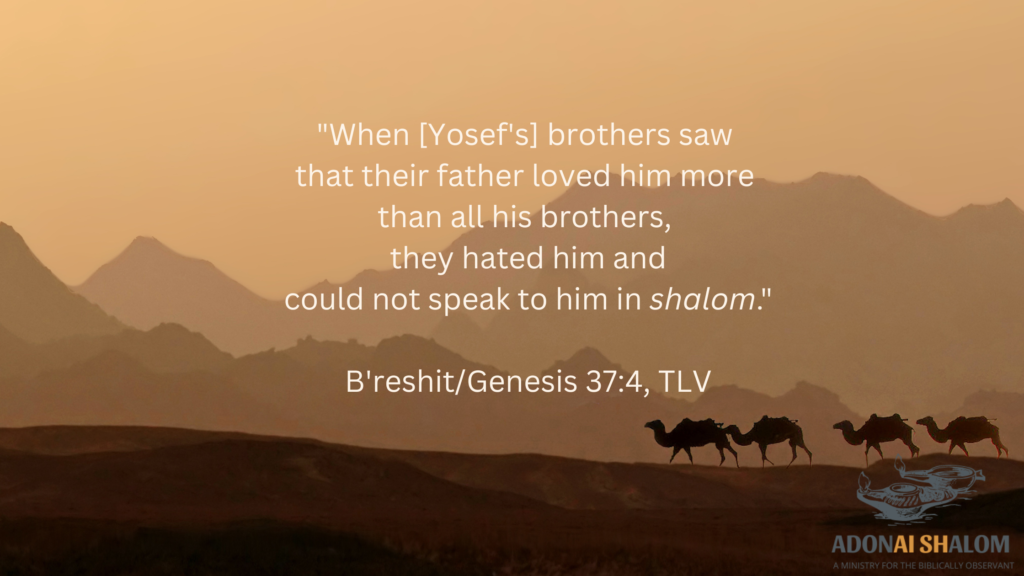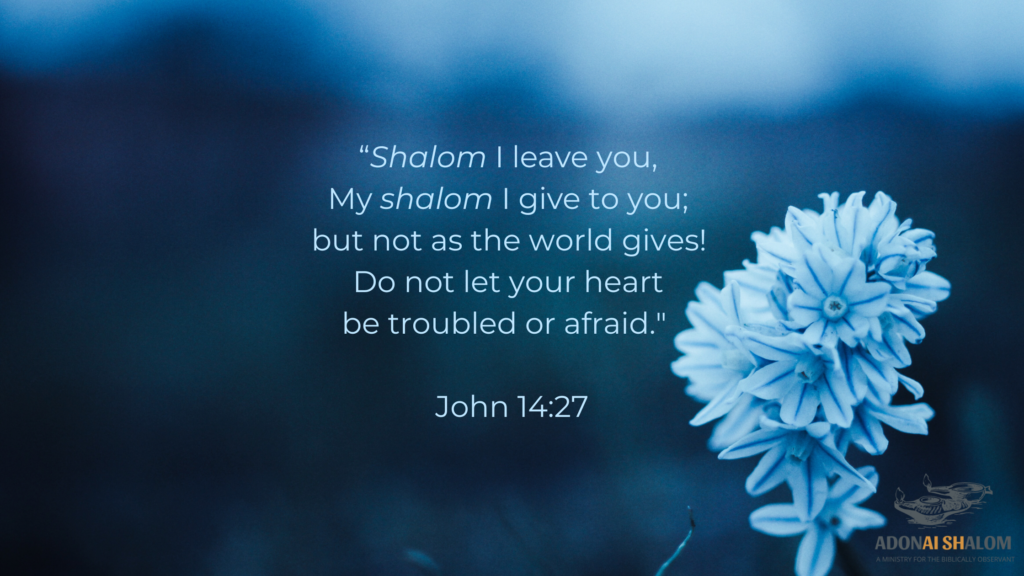Behold, your King is coming to you: Zechariah’s Palm Sunday prophecy
(Zechariah 9; Luke 19:28-48) 5783 B”H
It is already nearly Palm Sunday and Passover! We still have snow on the ground here in the northwoods, but the joy of our Savior’s Resurrection warms our hearts and helps us remember that the spring flowers are just about to burst forth.
Zekharyah: God remembers
Have you ever read the full prophecy found in Zechariah 9?
Zechariah (זְכַרְיָה (Zekharyah) was a priest and prophet by heritage and lineage and God used him to reveal one of the most important Messianic prophecies!
The Hebrew name “Zekharyah” means “God remembers.”
God remembers His people, He remembers His promises, and prophecy is fulfilled precisely because the LORD has spoken and His Word will not return void (Isaiah 55:11).
The chapter begins with judgment on Israel’s enemies – highly appropriate given the promise of Zion’s Coming King who would defeat evil. God remembered all that Israel had endured and reassured them that He would send the Righteous One.
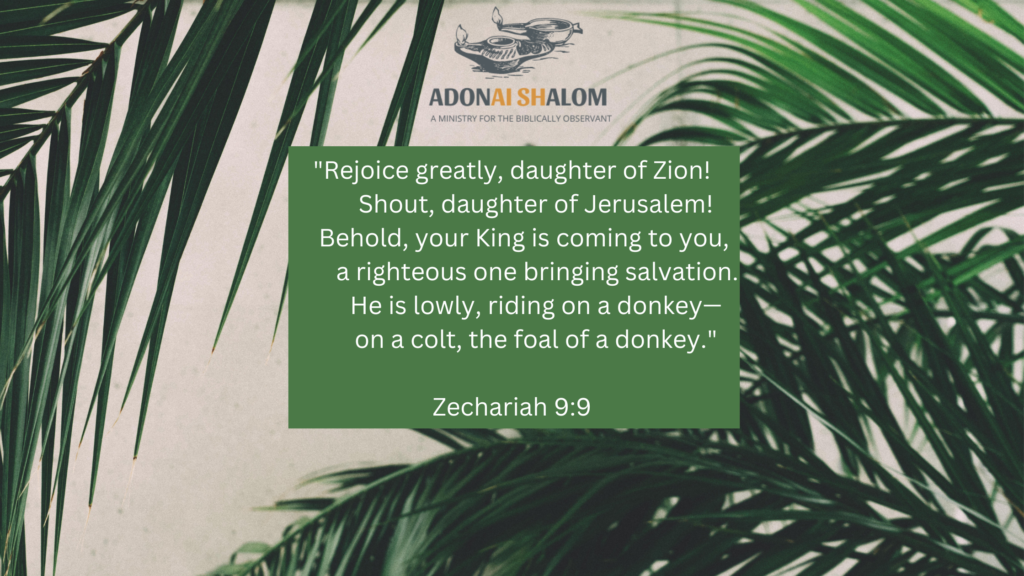
Zechariah 9:9-17 contains the prophecies that were fulfilled on Palm Sunday. Additionally, this passage prophesies that the coming King would speak shalom and salvation to the nations:
Then ADONAI will be seen over them
as His arrow flashes like lightning.
ADONAI Elohim will blow the shofar
and march in whirlwinds of the south.
ADONAI TZVA’OT will defend them.
They will consume and conquer with sling stones.
They will drink and roar as with wine
and be filled like a bowl,
like the corners of the altar.
ADONAI their God will save them on that day
as the flock of His people.
They will be like gems of a crown
sparkling over His land.
How good and beautiful it will be!
Grain will make the young men thrive
and new wine the virgin women.” Zechariah 9:9-17, emphases added
Isn’t this beautiful to picture?
“They will be like gems of a crown sparkling over His land.” Zechariah 9:16b
He loves you so much you sparkle like a regal gem!

As you can see, this Bible passage describes the overwhelming and awesome power of the LORD Most High. His arrows flash like lightning and shofars will sound and the LORD of the Armies will defend us. It is really impactful to dwell on this passage for a time. Meditate on God’s Word! You will always be blessed.
Our Humble King, Owner of all things
Do you notice that the Zechariah passage ends with all such fanfare and victorious imagery, but it sure didn’t start out that way. It tells about a lowly Man, riding on a donkey. But, despite the humbleness of the passage, it does make a bold announcement:
“Behold, your King is coming to you.” Zechariah 9:9
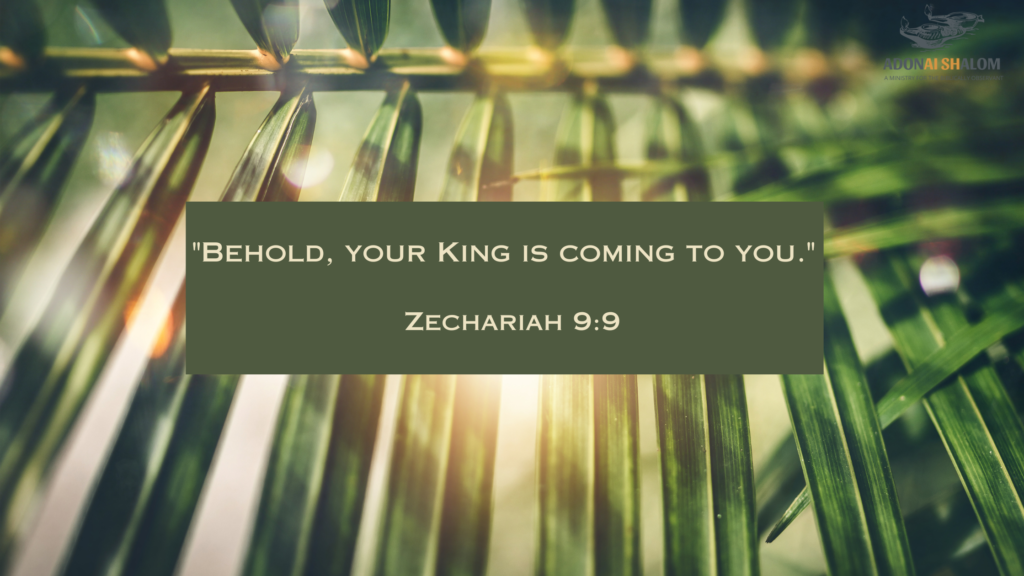
What a statement!
The King was coming! And not just any King – your King. The One who will hold out His scepter of righteous forgiveness and allow you into His Presence with all-consuming love, mercy, and passion.
Do you need to hear that today?
Do you need to know that there is One who holds all Authority, the Majestic King of all kings, and He is coming once again? No one knows the day or the hour of Yeshua’s (Jesus’) Second Coming, but I can assure you this: He is coming back for His own.
As Zechariah records, Messiah Yeshua (Jesus Christ our Lord) is the Righteous One and He is bringing salvation. He will save you, deliver you, and set you free of your burdens and your sins and even the curse and sting of death. He will give you new life, if you will trust in Him today with all your heart.
Luke documented the fulfillment of Zechariah’s prophecy that the Messiah would ride on a colt. (Luke 19:30ff).
I love how the owners of the colt ask the two disciples in Luke 19, “Why are you untying the colt?” Luke 19:33
That was a reasonable question. The disciples didn’t own the colt, but the Master, the LORD Himself can given them permission to take it! They were instructed to simply say,
“The LORD has need of him.” (Luke 19:34, NKJV).
“The Master needs it.” (Luke 19:34, TLV).
God owns everything, so He owned that young donkey, too.
The LORD needed the donkey because He was absolutely fulfilling in every minute detail the words of Zechariah‘s triumphal prophecy.
Luke describes the Triumphal Entry into Jerusalem
Even though our LORD chose to use a lowly donkey as His transportation into Jerusalem, the events of that first Palm Sunday were far from lowly.
During what is commonly described as “the Triumphal Entry into Jerusalem,” there was now a full multitude of people who would consider themselves Yeshua’s (Jesus’) disciples. They were celebrating because they knew He was the Anointed One, the Promised King!
Scripture says that they praised God with a loud voice!
Do you, too, praise Him with a loud voice?
Do you let it be known that you and your household serve this King?
“Blessed is the King who comes in the name of ADONAI!”
Shalom in heaven and glory in the highest!”
Some of the Pharisees from the crowd said to Him, “Teacher, rebuke Your disciples!”
But answering, Yeshua said, “I tell you that if these keep silent, the stones will shout out!”
Blessed is the King!
What has often become a repetitive custom to say, “Baruch haba b’Shem Adonai” was in that moment the most powerful declaration of allegiance and praise!
Shalom in Heaven and Glory in the Highest!
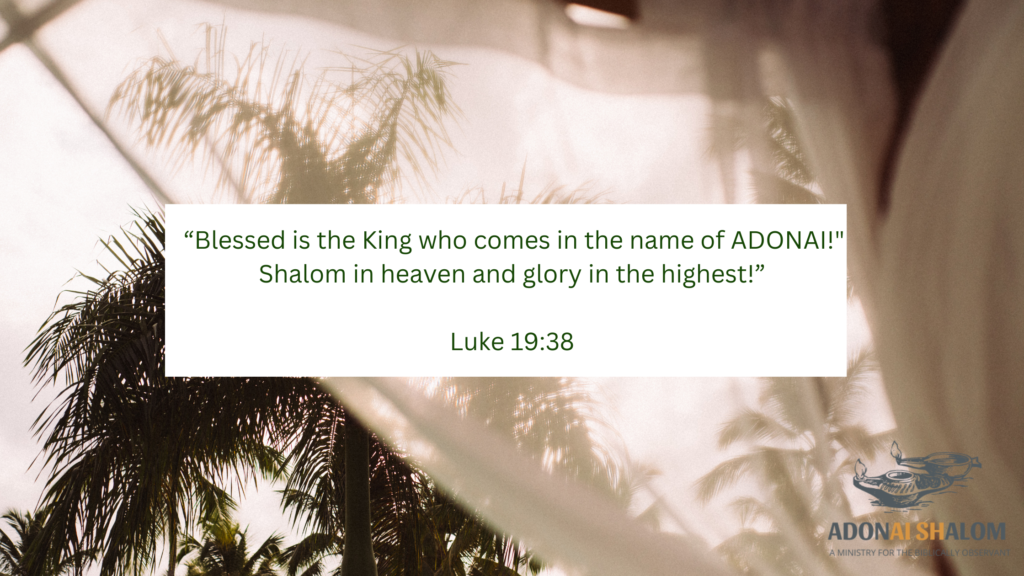
Shalom in heaven!
Glory in the Highest!
Doesn’t that reach the depths of your heart?
The joy of knowing the King of kings has come!
I imagine the overwhelming experiential joy that the disciples must have been feeling at that moment!
The Pharisees missed the mark and wanted to hear a public rebuke.
But Yeshua (Jesus) knew the condition of their hearts.
He wept over the Holy City, knowing that despite their daily greetings to one another saying, “Shalom,” they truly didn’t understand shalom.
More than a greeting and more than a temporary condition, true shalom comes only from being in right relationship with the Holy One, learning to love and seeking His mercy. Keeping every jot and tittle of the law could not save the people. They needed to know the Lord of Shalom.
Rejoice Greatly and Shout
Zechariah 9:9 proclaims we are to rejoice greatly and shout because of the announcement of the Coming King!
As we enter this Holy time of Passover and celebrating the FirstFruits of the Resurrection, I pray you will rejoice greatly. That you will not be ashamed to shout praises unto God Most High!
The tomb is empty. Our King will return!
Celebrate! And may we pray for those who do not yet know Him. That they, too, would shout “Hoshiana!” (Hosanna!): Please, save!
